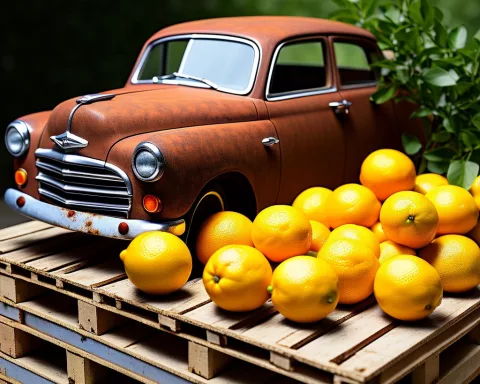South Africa has unexpectedly banned cannabis and hemp food products, like hemp seed oil and THC-infused treats, causing a stir in the growing cannabis industry. This sudden rule threatens jobs and economic growth, leaving many small business owners worried about their futures. Critics are outraged, especially since just a month ago, the president spoke about wanting South Africa to lead in hemp production. The ban raises serious questions about public safety and government promises, making it harder for the country to catch up with others that have embraced cannabis. As this situation unfolds, it’s vital for everyone, from business owners to policymakers, to talk and find a way that balances safety and opportunity.
What are the implications of South Africa’s cannabis ban?
South Africa’s recent ban on cannabis and hemp-derived food products prohibits their production, sale, and importation, affecting items like hemp seed oil and THC-infused edibles. This abrupt shift poses risks to the cannabis industry, threatens economic growth, and raises concerns about public safety and regulatory alignment.
Government’s Sudden Policy Shift
In an unexpected development, the South African Department of Health has enacted a sweeping ban on the production, sale, and importation of cannabis and hemp-derived food products. Disclosed in a recent government gazette under the Foodstuffs, Cosmetics, and Disinfectants Act of 1972, this decision directly challenges the budding cannabis industry and contradicts earlier governmental commitments to nurture the sector. Updated on March 7, 2025, the regulation outlaws any food products containing ingredients from the Cannabis Sativa L plant, including hemp seed oil, hemp seed flour, and THC-infused edibles. This abrupt policy change has sparked heated debates concerning cannabis safety, economic empowerment, and the government’s dedication to cannabis legalization.
Far-Reaching Implications of the Ban
The new regulation’s implications are extensive, explicitly prohibiting all edible products derived from Cannabis sativa L. Items such as hemp seed oil, hemp seed flour, and the increasingly popular THC-infused edibles are included in this ban. Despite initial public skepticism, the prohibition is legally binding and enforceable under South African law.
The reasons behind this sudden ban are complex. Public safety concerns are a significant factor, with the government aiming to curb the unregulated production of cannabis edibles. Unscrupulous manufacturers might use unsafe methods, resulting in contaminated or overly potent products that could reach minors and uninformed consumers. Additionally, regulatory gaps in the current framework for the safe production, testing, and marketing of cannabis edibles may have prompted this drastic measure.
Another contributing factor could be the influence of lobbying from the pharmaceutical and alcohol industries, which stand to lose market share if cannabis-infused products become widely available. The ban also hints at internal government disputes, given its contradiction with the recently passed Cannabis for Private Purposes Bill (2024). This bill aimed to decriminalize the private use and cultivation of cannabis, highlighting a lack of alignment within government policies.
Industry Backlash and Economic Impact
The timing of this ban has further fueled outrage within the cannabis industry. Just a month before the announcement, President Cyril Ramaphosa had publicly declared his vision for South Africa to lead in hemp production. “We want SA to be leading in the commercial production of Hemp… which is so well-known in the Eastern Cape and KZN,” he stated. This pronouncement had instilled hope among entrepreneurs and investors, who saw immense potential for economic growth and job creation through the cannabis sector.
Small business owners, in particular, have voiced fierce opposition. Many of them have invested their life savings into cannabis ventures, only to find their livelihoods now at imminent risk. Social media platforms have been ablaze with criticism, accusing the government of reneging on its promises of economic empowerment and stifling opportunities for growth. For larger corporations and international investors, this ban represents a significant setback, with many having already funneled millions into projects based on South Africa’s anticipated shift towards a progressive cannabis industry.
Under the new regulation, continuing to sell, manufacture, or import cannabis-infused edible products constitutes an offense under the Foodstuffs, Cosmetics, and Disinfectants Act (1972). Violators face substantial fines and potential imprisonment. This development has left the future of South Africa’s cannabis industry hanging in the balance, casting doubt on its ability to become a global leader in the field.
Historical Context and Global Comparisons
The tension between the regulation and commercialization of cannabis is not new. The prohibitionist approach to cannabis has roots in early 20th-century policies, influenced by international treaties and moralistic attitudes. Over time, however, a gradual shift occurred as research began to uncover the medical and economic benefits of cannabis. In the United States, states like Colorado and California pioneered cannabis legalization, creating robust industries that significantly contributed to their economies. South Africa seemed poised to follow a similar trajectory, crafting a regulatory framework that balanced public safety with economic potential.
The recent ban threatens to derail this progress, harkening back to an era of stringent control and criminalization. It undermines the strides made towards sensible and balanced cannabis policies, contradicting the global trend towards cannabis legalization and commercialization. Countries like Canada and Uruguay have successfully integrated cannabis into their economies with stringent regulations ensuring public safety. South Africa’s move, therefore, appears regressive, potentially stalling its progress in the global cannabis market.
Indigenous Knowledge and Cultural Implications
Adding to the complexity is the role of traditional and indigenous knowledge. In regions like the Eastern Cape and KwaZulu-Natal, cannabis cultivation has deep historical roots. Indigenous communities have long utilized cannabis for medicinal and cultural purposes. The commercial potential of cannabis offered a unique opportunity to integrate indigenous knowledge systems into the formal economy, fostering inclusive growth and development. The ban, however, risks marginalizing these communities, stripping them of economic opportunities and perpetuating historical injustices.
The juxtaposition of modern regulatory frameworks and traditional practices presents a challenging yet crucial discourse. Integrating traditional agricultural knowledge with contemporary scientific approaches could pave the way for sustainable and inclusive cannabis industry development. This balance is essential for preserving cultural heritage while ensuring public safety and economic viability.
Navigating the Future: A Call for Constructive Dialogue
Another intriguing aspect is the global market dynamics of cannabis. Countries with established cannabis industries, like Canada and the Netherlands, have set high standards for product quality and safety through rigorous regulations. As South Africa navigates its regulatory landscape, learning from these international models could provide valuable insights. A well-regulated cannabis industry can attract global investors, enhance export potential, and position South Africa as a key player in the international market.
The artistic realm also offers a fascinating perspective on cannabis. Throughout history, numerous artists, writers, and musicians have drawn inspiration from cannabis. The Beat Generation in the 1950s, for example, celebrated cannabis as a catalyst for creative expression and countercultural movements. Contemporary artists continue to explore the interplay between cannabis and creativity, pushing boundaries and challenging societal norms. The intersection of cannabis and art underscores the broader cultural implications of cannabis regulation, extending beyond economic and medical considerations.
As the situation unfolds, stakeholders across the spectrum—from small business owners to policymakers—must engage in constructive dialogue. The goal should be to craft a regulatory framework that balances public safety concerns with economic opportunities. Transparent policies, inclusive of diverse voices, can pave the way for a thriving cannabis industry that benefits all South Africans.
In conclusion, South Africa stands at a critical juncture regarding its cannabis industry. The recent ban on cannabis and hemp-derived foodstuffs presents significant challenges but also offers an opportunity for introspection and re-evaluation. By drawing upon historical insights, global examples, and indigenous knowledge, South Africa can navigate this complex landscape, fostering a balanced and inclusive cannabis industry. The journey ahead requires collaboration, innovation, and a commitment to equitable growth, ensuring that the promise of the cannabis sector becomes a reality for all.
“`markdown
What is the recent ban on cannabis and hemp food products in South Africa?
The South African government has unexpectedly banned the production, sale, and importation of cannabis and hemp-derived food products, including hemp seed oil and THC-infused edibles. This ban, enacted under the Foodstuffs, Cosmetics, and Disinfectants Act of 1972, threatens the burgeoning cannabis industry and raises concerns about public safety and regulatory alignment.
What prompted the government to implement this ban?
Several factors contributed to the sudden ban on cannabis products. Public safety concerns were paramount, as the government aimed to mitigate the risks associated with unregulated production of cannabis edibles. Additionally, lobbying from pharmaceutical and alcohol industries, along with internal government disputes, may have influenced this abrupt policy change, contradicting earlier commitments to support the cannabis sector.
How does this ban affect small business owners and the cannabis industry?
The ban significantly impacts small business owners who have heavily invested in cannabis ventures, jeopardizing their livelihoods and economic prospects. Many entrepreneurs and investors had seen the cannabis industry as a path to economic growth and job creation. With the ban now in place, these opportunities are severely diminished, causing outrage and concern among industry stakeholders.
What are the potential legal consequences of violating the cannabis ban?
Under the new regulation, any continued production, sale, or importation of cannabis-infused edible products constitutes an offense under South African law. Violators face substantial fines and potential imprisonment, making compliance crucial for businesses operating within this sector.
How does South Africa’s situation compare to other countries that have embraced cannabis?
South Africa’s ban appears regressive compared to countries like Canada and Uruguay, which have successfully integrated cannabis into their economies with stringent regulations. These nations have created robust industries while ensuring public safety. South Africa’s recent policy shift risks halting its progress in the global cannabis market and contradicts the growing trend toward cannabis legalization worldwide.
What steps can stakeholders take to navigate the future of the cannabis industry in South Africa?
Stakeholders, including small business owners and policymakers, should engage in constructive dialogue to develop a regulatory framework that balances public safety with economic opportunities. Learning from global best practices and incorporating diverse voices, including indigenous knowledge systems, can help create a thriving cannabis industry that benefits all South Africans while preserving cultural heritage and ensuring safety.
“`












